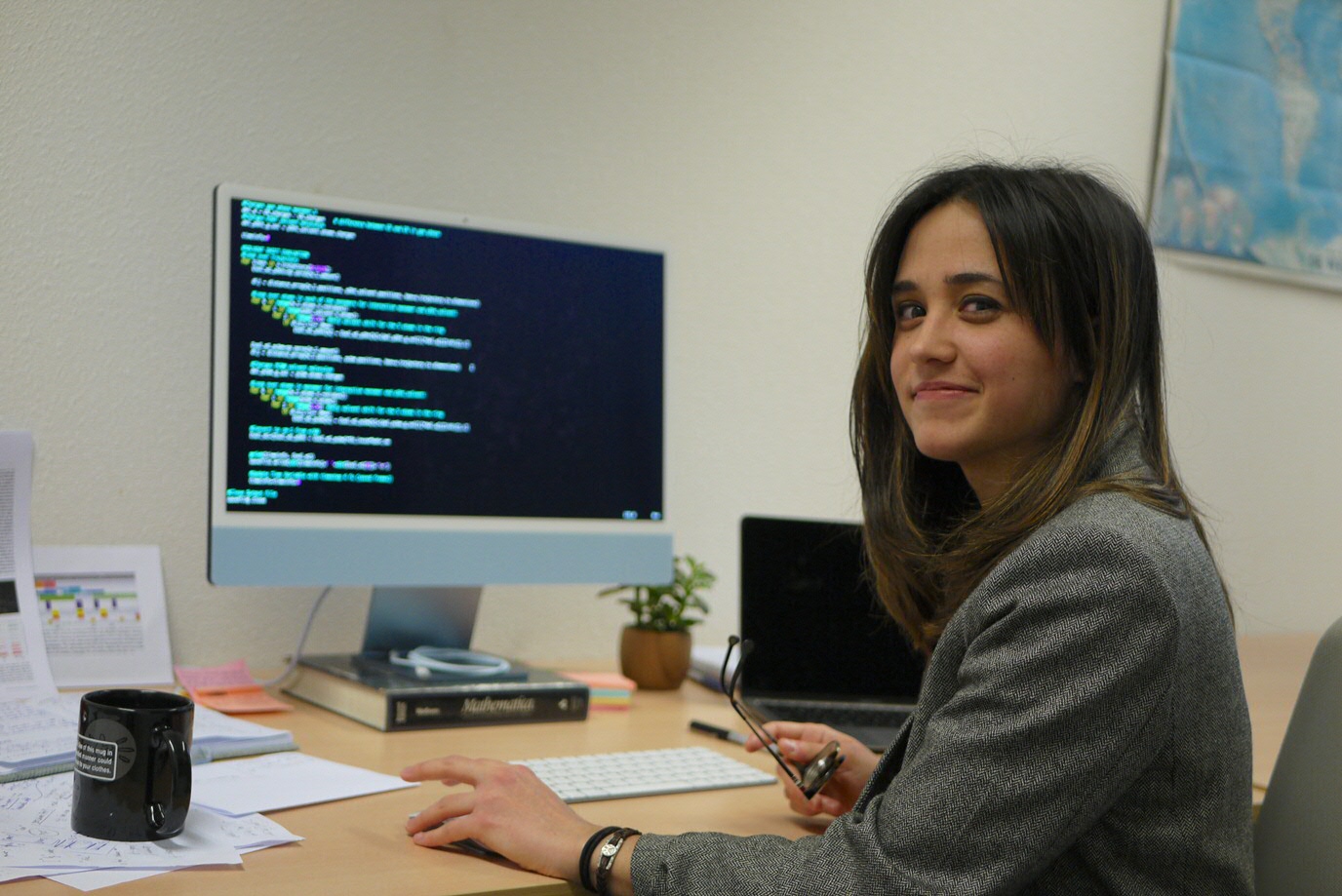Advent calendar - December 23rd - Elisa Palacino González
In the Zernike Institute Advent Calendar, we are presenting 24 short spotlights in December. In these specials, we highlight PhD students, postdocs, and technicians of our research groups - providing a glimpse into their typical day at work. In Episode 23 meet Elisa Palacino González.

I joined the University of Groningen as a postdoctoral researcher only a few months ago, after receiving earlier this year a Marie Skłodowska-Curie Individual Fellowship part of the Horizon 2020 EU Framework Programme. I am part of the Theory of Condensed Matter group led by Prof. Thomas la Cour Jansen in the Faculty of Science of Engineering of the Zernike Institute.
In my current project I try to understand the ultrafast (femtosecond time-scale) elementary mechanisms underlying the energy conversion process in organic photovoltaic materials. For this, I model the molecular structure of a typical solar cell system by combining quantum and classical methods with the simulation of the material optical response after interaction with ultrashort laser pulses. The idea I have behind this is that monitoring this dynamics in real time while observing how the excitation pulses drive the conversion process would allow to control the energy conversion rates, allowing to increase the efficiencies of such materials. The approach I use to tackle this goal mostly relies on the expertise I have gained over the past years since I started in my PhD studies with nonlinear spectroscopies and methods to simulate time-resolved optical signals of different molecular systems.
As a theoretician, my days at work are divided into office work and…. more office work. No labs (I am sure I would have so much fun though!). The first thing I do in the morning when I get to my office (after checking the calculations running over night) is read my new emails and briefly sketch the things I will work on along the day. Sometimes I spend the majority of the day writing and testing new computer codes while other days I do simulations and analyze data. There is also a big part of the week when I am involved in discussions within the group, which I actually love because it gives research work this vital aspect of teamwork and collaboration between staff and students. I also think the dynamical aspect of this way of working is necessary in this kind of job, since (I experienced multiple times) after these discussions one comes up with alternative ideas on how to tackle scientific problems.
After a long day at work I enjoy working out and doing yoga, which charges my mind with energy for the day after (specially since I have to spend long hours behind a computer screen!). Another of my favourite hobbies is stand up comedy and stage-performance, which I have enjoyed doing for the past years. Lately I have been combining stand-up routines with song-writing to talk about life in academia and how working as a scientist is from my own perspective. After all, I see writing comedy not so different from writing science: first you start observing something very carefully. Then you write and connect different ideas in a logical sense. And finally after a long time of work and reflexion you finally make it public and get some laughs. (I strongly recommend you not to take very seriously this last part unless you only see yourself working full-time in comedy)
Contact: Elisa Palacino González
More news
-
15 September 2025
Successful visit to the UG by Rector of Institut Teknologi Bandung
